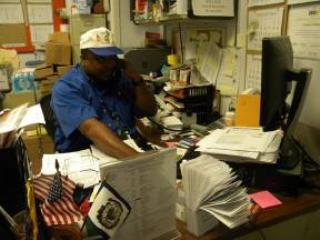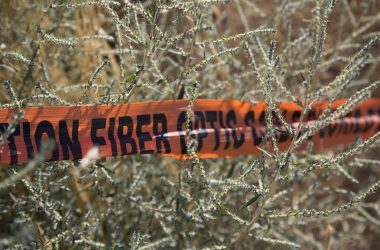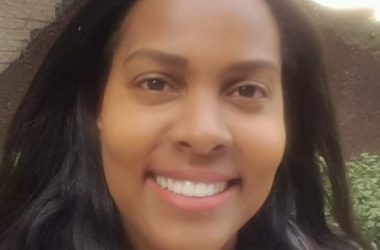
Just hours arriving for his 18-month tour in Germany, Queen was told he was supposed to help investigate a drug overdose.
“I’m like, ‘You’ve got the wrong guy, I’m a radar operator.’ He said, ‘Aren’t you in military intelligence? You are going to investigate a drug overdose, so, as they say, you’ve got to learn to change on the fly,'” Queen said.
It wasn’t until eight months after arriving in Germany that Queen was sent to the front as a radar operator. The Cold War was still ongoing, the Berlin Wall had yet to be torn down and the U.S.S.R.’s iron curtain still firmly encircled eastern Europe.
As a radar operator, Queen’s job was to keep an eye on the border, spot the enemy and report their position. A radar team consisted of a three-man outfit that included a radar operator, radio man and spotter. Queen was trained in all three jobs.
“When I was in Germany, we still used the old fashioned radars that they used toward the end of World War II. They were still using those,” Queen said.
He said radar operations were mainly nighttime affairs. Radar unit teams were stationed on the front near the border from dusk until dawn.
“By the time you thought the sun was coming up, you were supposed to pack up and get the hell out of Dodge,” Queen said.
Queen said he only got nervous once while serving on the German border. On one particular morning, he said he and his radar team were getting ready to get off duty but were waiting for a fog to lift. A blip appeared on Queen’s radar screen that became louder and louder in his headset. The blip kept getting closer, crossing the area of the mine field at the German border separating east and west. When the fog lifted, Queen and his radar team were staring at a Hind-D helicopter gunship. Queen said he had only ever seen a Hind-D in pictures and on television before.
“If you know anything about aircraft, it’s a flying fortress or mini-fortress. It’s got all sorts of armaments on it and he was sitting right in front of us,” Queen said.
A young cavalry lieutenant was with Queen and his outfit that morning. The lieutenant was new to the front, and it was the first time he had been at the border.
“He was about to hit the alarm and I was like, ‘Whatever you do, don’t hit that alarm.’ I’m like, ‘He’s just as lost as we are shocked, so just let him freak out. He’s too close and he’s going to back off and I can go change my pants,'” Queen said.
The lieutenant heeded Queen’s advice and the team returned safely without incident. After leaving Germany, Queen returned to Fort Lewis in Washington only to find his unit was already gone. He was given a choice. He could either go to Alaska or he could go to Egypt. Queen had just returned from Germany in the wintertime, and he said he was unsure of being stationed in Alaska, so he chose Egypt.
“Basically, it was to test the new radar equipment. They had to find out how the battery did in extreme heat and how it would do in extreme cold, so I went to Egypt and found out exactly what extreme heat was,” Queen said.
He said noontime temperatures in the desert would reach 120 to 130 degrees, but fell to 40 degrees or lower at night. His training on the new radar equipment later resulted in him agreeing to go to South Korea at the request of his mentor and superior officer. At the time, no one knew how to operate the new radar equipment when it was sent to teams in Korea. Since Queen already had experience in operating them, he was asked to ship out to South Korea.
“When I went to the border at Korea, that was more of a learning experience because we were interfacing with Korean ROK (Republic of Korea) soldiers. We taught them a little and they taught us a little,” Queen said.
Queen said he learned to speak enough of the language to get by and that, in many cases -even today – North Koreans and South Koreans have relatives and family members on both sides of the border.
“They really don’t want war and basically you can just go to the fence and they show you pictures of their family and I showed them pictures of mine,” Queen said.
Queen’s tour in South Korea was a mandatory one. Known as a hardship tour, Queen, who was married, was required to go to a duty station without family for the yearlong tour.
“I didn’t mind staying on the border, especially in Korea, where you learned more about camaraderie, friendship, loyalty,” Queen said.
That’s because he said each radar site in South Korea was self-sufficient. Each radar unit performed rotating 28-day tours of duty.
“So if war broke out, we were on our own, which means you had to cross-train as a medic, a cook, radar operator, explosives – all of that. You have to be able to survive on the run,” Queen said.
Looking back on his career in the military, Queen said he enjoyed the travel, the food and most of all, everybody he served with. Queen is currently employed by the Disabled American Veterans at the Veterans Affairs Medical Center in Martinsburg, where he serves as the hospital service coordinator. He has held the position for the last seven years and, as part of his post, he is a transportation coordinator for veterans living in rural areas. He also helps veterans file claims for benefits.
“For a lot of time, people didn’t even know we were here in the hospital and a lot of them still don’t. We try to help as many veterans as we can. That’s what our mission goal is – to give aid and assistance to veterans,” Queen said.
-Staff writer Edward Marshall can be reached at 304-263-8931, ext. 182.
To read other articles and follow news from West Virginia’s Eastern Panhandle, subscribe to The Journal at http://www.journal-news.net





